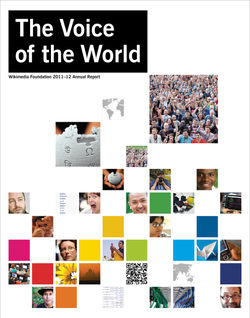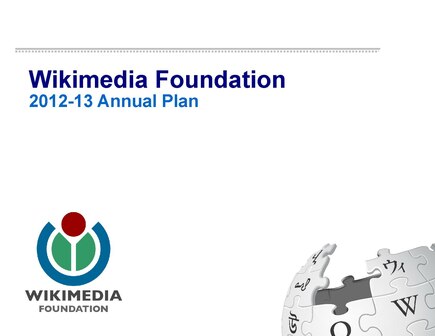Fundraising 2012/Translation/FAQ short/sw
In a nutshell, what is Wikipedia? And what is the Wikimedia Foundation
Wikipedia is the world's largest and most popular encyclopedia. It is online, free to use for any purpose, and free of advertising. Wikipedia contains more than 47 million volunteer-authored articles in over 298 languages, and is visited by more than 430,000,000 million people every month, making it one of the most popular sites in the world.
It is a collaborative creation that has been added to and edited by millions of people during the past thirteen years: anyone can edit it, at any time. It has become the largest collection of shared knowledge in human history. The people who support it are united by their love of learning, their intellectual curiosity, and their awareness that we know much more together than any of us does alone.
The Wikimedia Foundation is the non-profit organization that operates Wikipedia and other free knowledge projects. Together these sites are the fifth most visited web property in the world. The Wikimedia Foundation is a 501(c)(3) tax-exempt non-profit organization with offices in San Francisco, California, USA. You can review our letter of tax-exemption and our financial reports and annual filings. Our mission is to empower a global volunteer community to collect and develop the world's knowledge and to make it available to everyone for free, for any purpose. We work together with a network of chapters in many different countries to achieve this goal.
If I donate to the Wikimedia Foundation, where does my money go?
Money you donate pays for the infrastructure that supports Wikipedia. Even though Wikipedia and its sister projects together reach 430,000,000 million people every month, we employ only around 302 people; see our staff overview. Above all, the Wikimedia Foundation exists to support and grow the vast network of volunteers who write and edit Wikipedia and its sister projects – more than 80,000 people around the world.

Where can I find more financial information?
Financial reports and other related financial information and annual reports can be found at http://wikimediafoundation.org/wiki/Financial_reports.
What are your plans? Where is this going?

As Wikimedia Foundation founder Jimmy Wales put it: "Imagine a world in which every single human being can freely share in the sum of all knowledge." We're serious about this vision. Every month, more than 430,000,000 million people around the world already use Wikipedia. It's available online, on your mobile device, on DVD, in books, and many other forms. We aspire to reach everyone, and to continually provide more and better information. You can find out more information about our five-year targets, set in 2010 by the Board of Trustees.
Which projects do you support?
The Wikimedia Foundation supports a number of projects, including Wikipedia, and more information may be found on the page about our projects.
The Wikimedia Foundation is not affiliated with WikiLeaks.
How is the Wikimedia Foundation run?

The Wikimedia Foundation has a staff of 302, led by the Executive Director, Sue Gardner. The staff supports the work of the tens of thousands of volunteers who contribute content to the Wikimedia projects. The Wikimedia Foundation is also supported by countless volunteers participating through committees, as interns, or on an ad hoc basis. The Board of Trustees articulates the mission and vision of the Wikimedia Foundation, reviews and helps to develop long term plans, provides oversight, and supports the Wikimedia Foundation's fundraising efforts. It is the ultimate organizational authority of the Wikimedia Foundation as defined in its bylaws. See Meetings for published Board minutes and Resolutions for published Board resolutions. The Board is comprised of ten members, with three seats elected directly by the Wikimedia community; two seats selected by the Wikimedia chapters; one Board-appointed "community founder" seat (reserved for Jimmy Wales); and four Board-appointed "specific expertise" seats. The Board is supported by an Advisory Board. We strive to operate highly transparently, and have published key policies and financial information.
How is the Wikimedia Foundation funded?
The Wikimedia Foundation is funded primarily through donations from hundreds of thousands of individuals, but also through several grants and gifts of servers and hosting (see benefactors). The Wikimedia Foundation receives donations from more than 50 countries around the world. The average donation is quite small, but their sheer numbers have ensured our success. We are not considering advertising as a source of revenue. The Wikimedia Foundation has 501(c)(3) tax exempt status in the United States. Donations made from other nations may also be tax deductible. See deductibility of donations for details, but please note that you should contact a tax expert or specialist in your country for accurate, up-to-date information.
Click here for details on all of the ways to monetarily support of the Wikimedia Foundation. For all other types of donation, please contact us through donate![]() wikimedia.org.
wikimedia.org.
Why doesn't Wikipedia use ads for revenue?
We do not believe that advertising belongs in a project devoted to education, and one that is driven by the values consistent with a balanced, neutral encyclopedia. Our big, global volunteer community (the people who make Wikipedia) have always felt that advertising would have a major effect on our ability to stay neutral, and ultimately ads would weaken the readers' overall confidence in the articles they are reading. The current models for web advertising are also not supportive of our views on user privacy. We do not want to deliver ads to users based on their geography or on the topic they are currently reading about. Contextual advertising (similar to geo-targeted advertising) reads the content you are viewing which goes against Wikipedia's strict privacy policy for users. We respect your right to online privacy, and bring you the knowledge and information you are looking for. We are not against the world of online advertising, nor are we against other organizations that host ads. We just know ads are not an appropriate thing to find in a project devoted to education and knowledge - and especially one that strives for balance and neutrality.
How much money are you hoping to raise?
The 2012-13 plan posits revenue of $46.1 million, a 32% increase over projected revenue of $34.8 million for 2011-12. More details about our finances can be found in our financial reports. Here is our 2012-13 Plan (PDF), and here is the Questions and Answers page related to it.
 |

|
| ' | '
|
What other options exist to allow me to donate?
Alternative ways to donate to the Wikimedia Foundation include:
- ... setting up an automatic monthly gift
- ... sending check via regular mail
- ... making a stock donation
- ... using your employer's matching gift program check to see if your employer will match your gift make a Legacy Gift to ensure Wikipedia is around for generations to come
Can I make a donation over the phone or via email?
Unfortunately, no. Due to privacy and other security concerns, Foundation employees do not process credit or debit card information. Donation pages are extremely secure and powered by Verisign Trusted. All information is encrypted and handled following the highest standards of data protection. Our fundraising tech team also perform security audits on a regular basis to check for any irregularities. If you truly do not wish to send your financial information online, a check or bank transfer may be your best option.
Are my donations tax-deductible?
Please refer to the information on tax-deductibility for the details of tax-deductions and tax receipts.
Why is there a minimum donation?
We receive small donations from people who don't have much money, and we are really, really grateful to those donors. Unfortunately it is not uncommon for people to use donation mechanisms such as ours to test stolen credit cards to see if they work. Those people typically use a very small amount for their testing: a $1 minimum donation amount seems to deter them.
What is your donor privacy policy?
We are serious about protecting the privacy rights of our donors. Please see our Donor Privacy Policy for our full details. In short, we do not share, sell, or trade your email address with anyone.
What is your refund policy?
If for any reason you wish to have your donation refunded, please contact us via email at donate![]() wikimedia.org. We will need the following information in order to process your refund:
wikimedia.org. We will need the following information in order to process your refund:
- Date of donation (All refund requests must be made within 90 days of donation)
- Amount donated (Donations above USD $10,000 are considered major donations and are subject to the applicable grant agreement between the Foundation and the donor)
- Full name
- Payment method used (credit card, bank transfer, E-wallet, ...)
- Country of origin
- Reason for the refund
Please note that some payment methods may not support refunds, or require refunds to be made through the payment method (card) utilised, so additional information may be required to process your refund. All refunds will be processed as quickly as possible, but processing times may vary depending on the payment method.
What can I do to help you spread the word?

Spread the word any way you can! Tell your friends and family. Tell them what Wikipedia means to you. Ask them if they use it and if so, what it means to them. Use this text as the signature file on the bottom of your emails: We’ve created the greatest collection of shared knowledge in history. Help protect Wikipedia. Donate now: https://donate.wikimedia.org Join us on social media by following our social media accounts:
